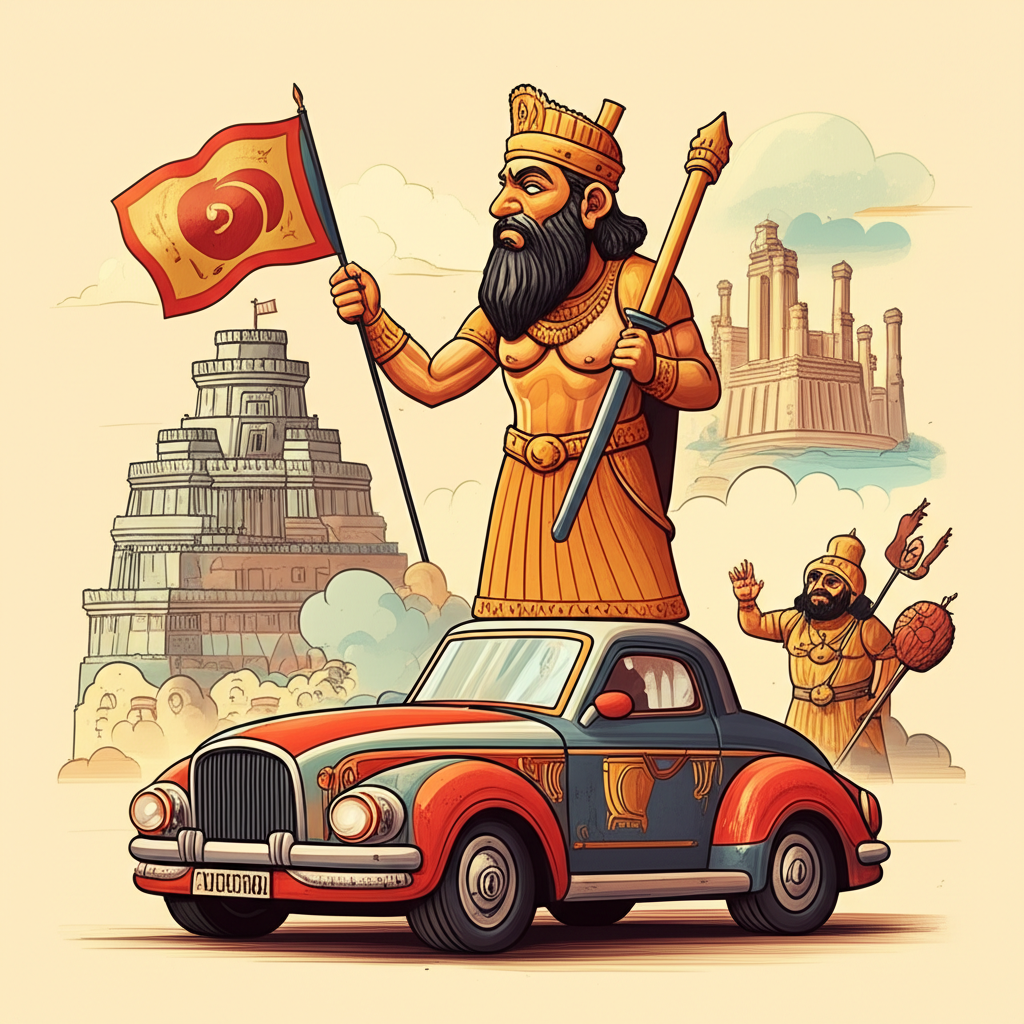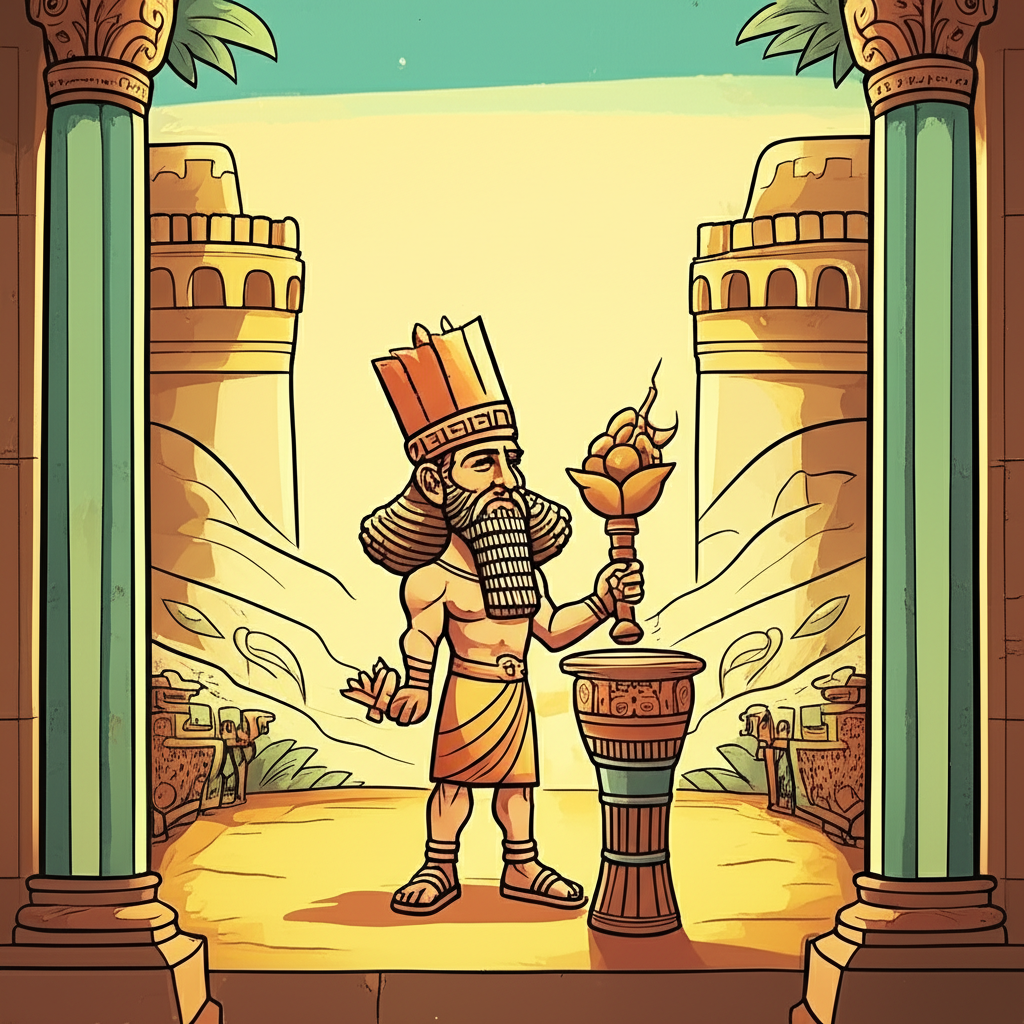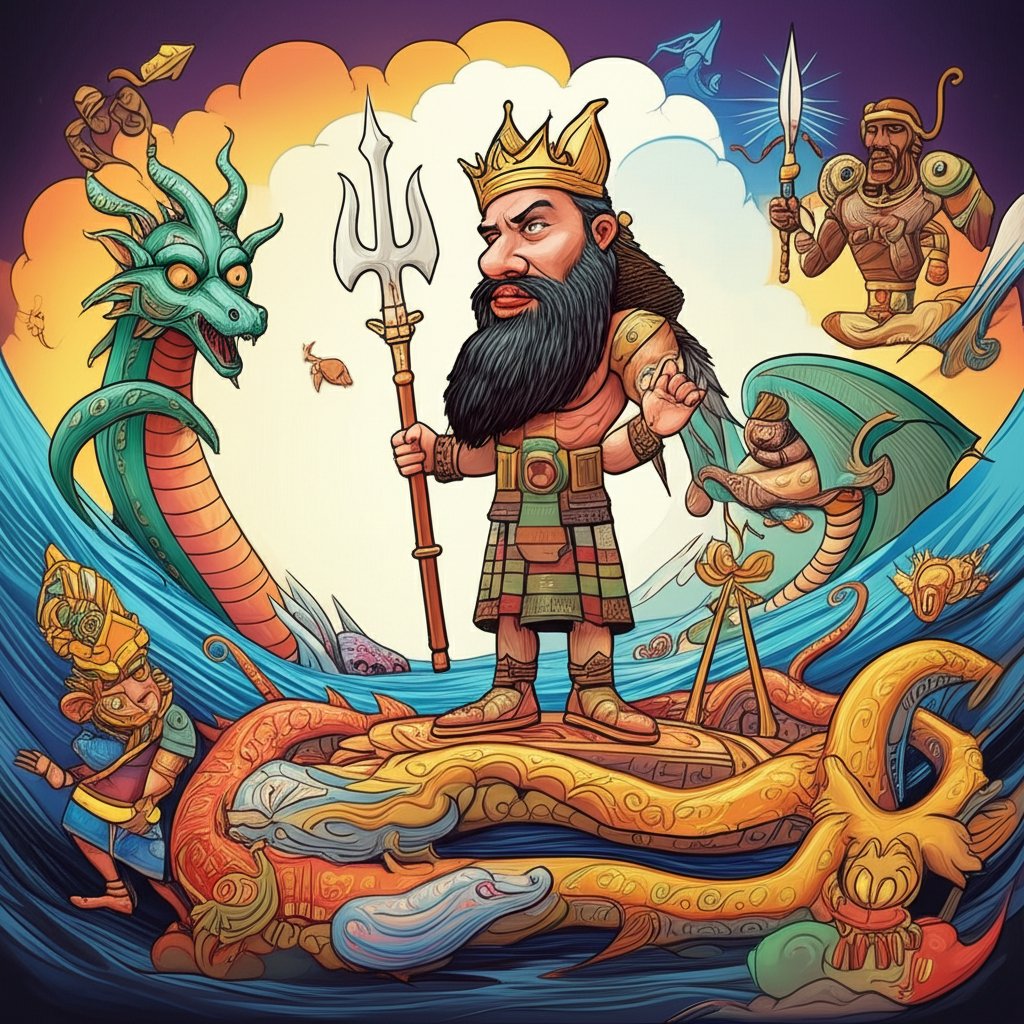
Long before the written word was etched onto paper, before empires rose and crumbled to dust, the ancient Mesopotamians, particularly those dwelling in the fertile crescent between the Tigris and Euphrates rivers, wove tales that echoed through generations. Among these, none resonates with the enduring power of the Epic of Gilgamesh, a saga born from the cradle of civilization itself, the city of Uruk. This is not a chronicle of divine decree, but a traditional story, a testament to the imagination of ancient peoples grappling with the fundamental questions of life, mortality, and the human spirit.
The world from which the Epic of Gilgamesh emerged was one of stark contrasts and profound wonder. The Sumerians, and later the Babylonians and Assyrians, lived in a land blessed by the life-giving rivers but also vulnerable to their unpredictable floods. Their societies were structured around burgeoning cities, centers of trade, religion, and nascent governance. The cosmos, as they understood it, was a complex tapestry of gods and spirits, capricious forces that governed the natural world and human destiny. They viewed the divine as ever-present, a force to be appeased and understood through rituals and omens. Life was often fleeting, shadowed by the ever-present specter of death, and the pursuit of meaning in the face of this inevitability was a central concern. It is within this vibrant, yet often precarious, world that the story of Gilgamesh, and the prophecies that touched his life, took root.
At the heart of this epic stands Gilgamesh, the mighty king of Uruk. He is depicted as a figure of immense physical prowess, two-thirds divine and one-third mortal, a being of extraordinary strength and beauty, yet also prone to arrogance and tyranny. His power was not merely physical; it was the power of leadership, the ability to command armies and shape the destinies of his people. However, his divine heritage also hinted at a deeper, more profound connection to the cosmic forces, a connection that could manifest in pronouncements of fate. He was a ruler who demanded respect, a hero whose deeds would be sung, but also a man destined to confront the limits of his own existence.
The narrative unfolds with Gilgamesh, a king whose rule was initially marked by oppression, a man of boundless energy and a restless spirit. The gods, observing his unchecked power and the suffering of his people, fashioned a counterpoint: Enkidu, a wild man, born of the wilderness, his body covered in hair, his strength rivaling Gilgamesh’s own. Enkidu was a creature of instinct, untamed and pure, a reflection of the raw forces of nature. He was symbolic of the natural world, a stark contrast to the ordered, yet often cruel, civilization Gilgamesh represented. Their epic confrontation, a battle of titans that shook the very foundations of Uruk, ultimately led to an unlikely friendship, a bond that would redefine both men.
It is within this burgeoning friendship that the "prophecy" of Uruk, in a broader sense, begins to unfold. While not a single, explicit prophecy delivered by a specific oracle in the traditional sense, the epic is imbued with a sense of impending fate and the consequences of actions. The gods, through various omens and interventions, shape the narrative, guiding Gilgamesh and Enkidu towards their destinies. For instance, their decision to venture into the Cedar Forest to slay the monstrous Humbaba, a guardian figure embodying the wild, untamed power of nature, can be seen as a step towards a preordained path. Humbaba, a creature of immense size and fearsome aspect, represented the raw, chaotic forces that humanity sought to tame and control. His defeat, orchestrated by the combined might of Gilgamesh and Enkidu, was a symbolic victory for civilization over the untamed wild, a testament to human ambition.
The true turning point, however, arrives with the death of Enkidu. This loss, a profound and shattering experience for Gilgamesh, triggers a desperate quest for immortality. He journeys to the ends of the earth, seeking the wisdom of Utnapishtim, the man who, in the great flood, was granted eternal life by the gods. This quest is fraught with peril, a symbolic descent into the underworld and a confrontation with the inevitability of death. The "prophecy" here is not a foretelling of specific events, but the universal truth that all mortals, regardless of their power or lineage, must eventually face their end. Gilgamesh’s encounters with the scorpion-men at the gates of the underworld, or his arduous passage through the mountain of Mashu, represent the trials and tribulations inherent in the human condition.
The story of Gilgamesh and Enkidu, and the king’s subsequent search for eternal life, may have represented a multitude of concepts to the ancient Mesopotamians. The epic explored the nature of kingship and leadership, questioning whether true power lay in brute force or in wisdom and compassion. It delved into the profound bond of friendship, demonstrating its transformative power. Most importantly, it grappled with the universal human fear of death and the longing for something that transcends mortal limitations. The wildness of Enkidu and the Cedar Forest symbolized the untamed forces of nature, while Gilgamesh’s quest reflected humanity’s persistent desire to conquer these forces and, ultimately, death itself. The flood narrative, embedded within Gilgamesh’s quest, served as a potent reminder of the capricious nature of the divine and the fragility of human existence.
In the modern world, the Epic of Gilgamesh continues to resonate, finding its place in literature, film, and academic study. It is studied for its literary merit, its insights into ancient Mesopotamian culture, and its exploration of timeless themes. Scholars analyze its narrative structure, its mythological elements, and its enduring relevance to the human experience. The character of Gilgamesh, a flawed hero wrestling with profound existential questions, continues to captivate imaginations, inspiring adaptations and reinterpretations that explore his journey through contemporary lenses.
It is crucial to reiterate that the Epic of Gilgamesh is a cultural story, a product of ancient human imagination and a window into their worldview. It is a powerful narrative that has endured for millennia, offering profound reflections on the human condition. As Muslims, we recognize that only Allah (God) is the true Creator and Sustainer of all existence. This epic, therefore, is appreciated for its historical and cultural significance, as a testament to the rich tapestry of human storytelling and the enduring power of imagination to explore the deepest questions of life and our place within it. The echoes of Uruk, carried on the winds of time, continue to remind us of our shared human heritage and the timeless art of storytelling.




